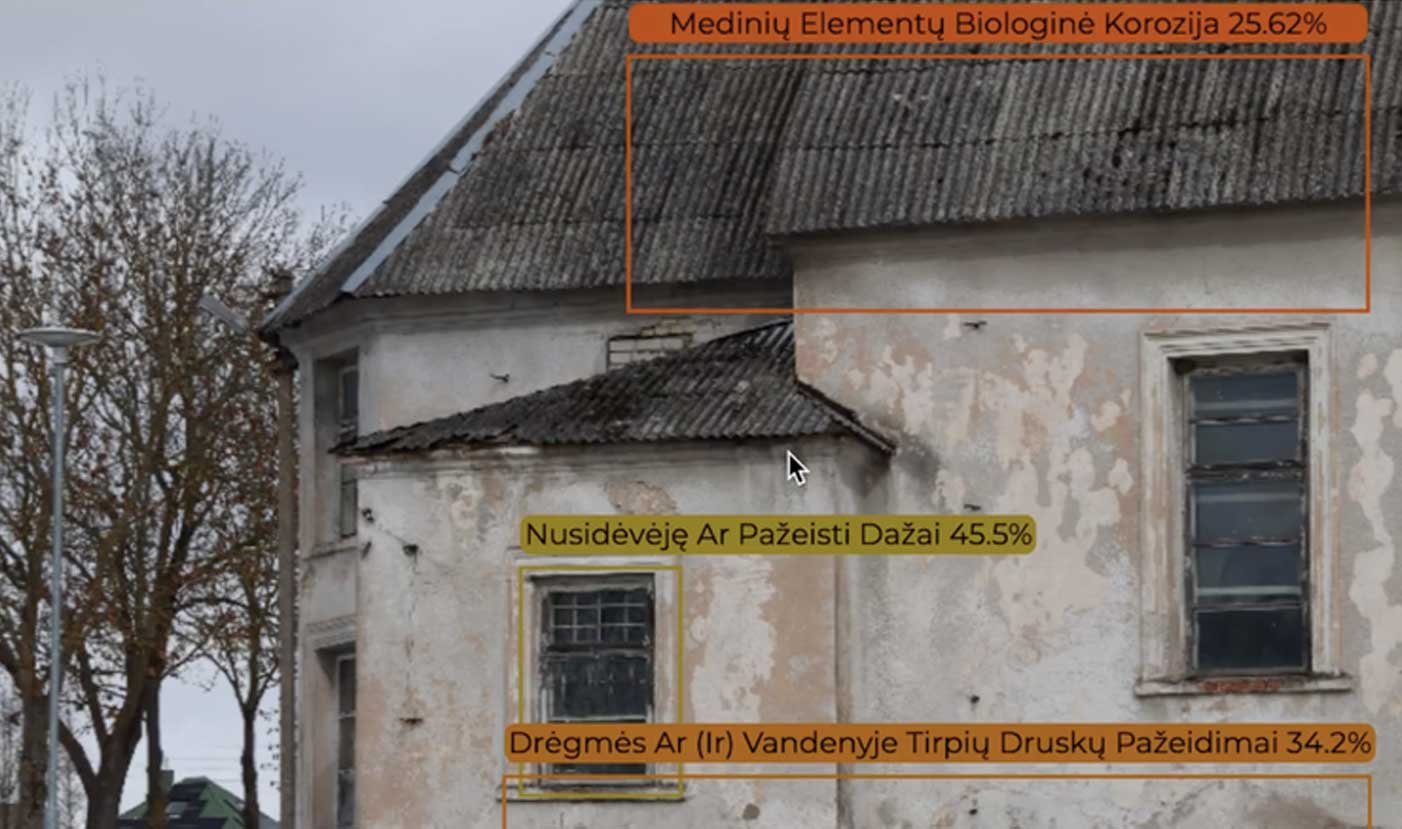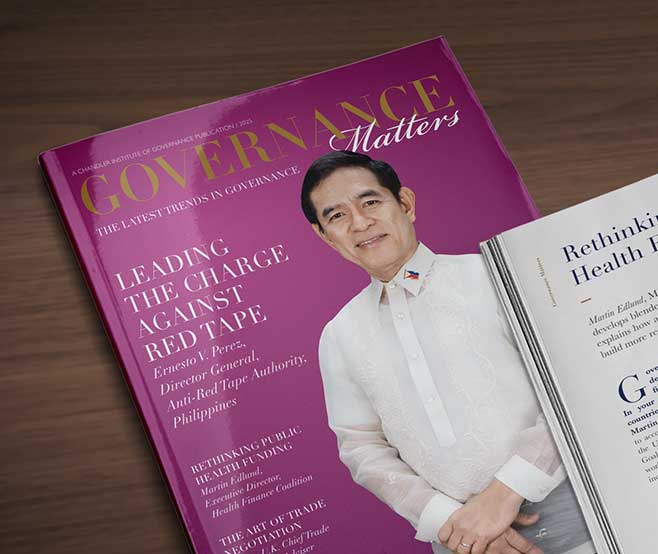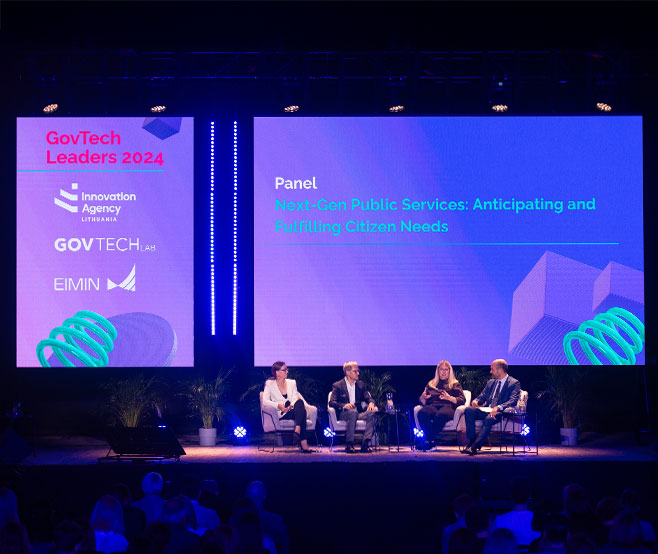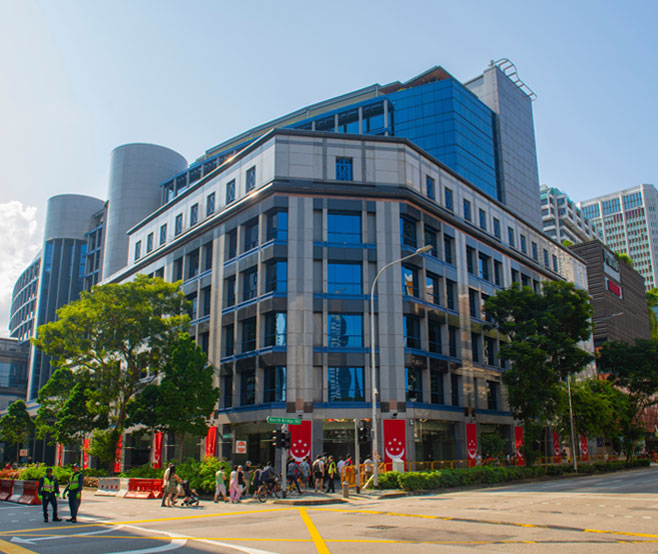Lights, Camera, Activism!
Professor Natasha Lindstaedt explores how governments can tap on celebrity activism to spotlight critical issues and the role that celebrities can play when it comes to effective political communication.
Lorem ipsum dolor sit amet, consectetur adipiscing elit, sed do eiusmod tempor incididunt ut labore et dolore magna aliqua. Ut enim ad minim veniam, quis nostrud exercitation ullamco laboris nisi ut aliquip ex ea commodo consequat. Duis aute irure dolor in reprehenderit in voluptate velit esse cillum dolore eu fugiat nulla pariatur.
Heading 1
Heading 2
Heading 3
Heading 4
Heading 5
Heading 6
Lorem ipsum dolor sit amet, consectetur adipiscing elit, sed do eiusmod tempor incididunt ut labore et dolore magna aliqua. Ut enim ad minim veniam, quis nostrud exercitation ullamco laboris nisi ut aliquip ex ea commodo consequat. Duis aute irure dolor in reprehenderit in voluptate velit esse cillum dolore eu fugiat nulla pariatur.
Block quote
Heading 6
Ordered list
- Item 1
- Item 2
- Item 3
Unordered list
- Item A
- Item B
- Item C
Bold text
Emphasis
Superscript
Subscript
Celebrities and Politics
In the last 10 years, Ben Affleck’s humanitarian organisation, Eastern Congo Initiative (ECI) has given more than US$ 10.5m in grants to support local Congolese organisations that were working to assist sustainable development projects. Some of these projects include training 150 female cocoa farmers to read and learn other vital economic skills, and providing grants to local coffee cooperatives. Affleck’s star power has not only attracted impressive financial support to the organisation but also helped the ECI gain bi-partisan support from members of the U.S. Congress, including Representative Adam Smith and Senator Lindsey Graham to sponsor bills and legislation to aid the eastern Congo.
Why Celebrities May Get Involved in Politics
For most celebrities, their interest in politics is driven by two factors. First, they may be genuinely interested in a political issue or cause. Second, they recognise the benefits of being admired and see a need to shape a positive personal image. Being involved in a good cause helps celebrities distinguish themselves from tabloid celebutantes and assists them in being taken more seriously. Overall, it helps to construct a powerful personal brand that yields positive benefits for them professionally.
The internet has also made it easier for celebrities to inform themselves on causes that are important to them, and quickly appear competent on these issues. Celebrity activism is so widespread that this has spawned a new industry where experts strategically assist in matching charitable organisations with the appropriate celebrity.
Mediatisation of Society and the Rise of Celebrity Activists
Celebrities have become even more important in highlighting political and social issues due to the ongoing mediatisation of society. The growing use of social media has increased the power and influence of celebrities, helping them reach a much wider audience. Celebrities have a platform of millions of followers on Instagram and Twitter that may be hanging on to their every word. Kim Kardashian for example, has spent much of her public life being ridiculed for being a materialistic reality star. In spite of this persona, with 254 million followers on Instagram, she has also successfully advocated for the clemency of 31 people who faced life imprisonment for non-violent crimes, most notably, Alice Johnson who had a life sentence for a first-time drug offence.

The Power of Spotlight
Billionaire mogul Oprah Winfrey has not only donated upwards of US$ 50m a year to education, health care, and advocacy for women and children, she also lobbied for the 1993 National Child Protection Act, also known as the Oprah Bill, which established a database of convicted child abusers. Actress Elizabeth Taylor raised millions for AIDS charities, serving as one of the first advocates for AIDS funding, starting with the AIDS Project Los Angeles. U.S. basketball star Lebron James has donated and raised millions for children’s and education charities through his Lebron James Family Foundation.

American football player Colin Kaepernick gained global attention for kneeling during the national anthem at American football games to spotlight systemic injustices against the African American community in the criminal justice system and protest against police brutality. Other noted African American celebrities — and most notably athletes — eventually followed suit and global attention turned to this ongoing problem. U.S. actor Mark Ruffalo has become involved in advocacy for clean water and clean energy for all. He has lobbied the U.S. Congress to support bills to increase infrastructure to ensure clean water and highlighted the issue of PFAS industrial chemicals polluting waters in North Carolina.

Authenticity Matters
That said, many of these examples of celebrity activism are high-profile stars drawn from Europe and North America, which reinforces the image that the global south somehow needs to be saved by the west. But celebrities from the global south have played an important role in advocating on behalf of policies and organisations that they care about. Much of the effectiveness of celebrities centres on their authenticity and expertise, and not just their connections and charisma.
Some of the most effective advocates offer a closer connection to what they are supporting. Bestselling author Ishmael Beah suffered trauma from being a child soldier in Sierra Leone. He has since worked with the UN and created his own foundation to give a voice to children scarred by the violence in his home country of Sierra Leone. Beah has also worked to raise awareness about the devastating impact of Ebola on local communities and to raise funds for education. Somali model Waris Dirie, herself a victim of Female Genital Mutilation (FGM) has advocated against FGM and started her own foundation to offer treatment and care for victims.
There are many other examples of celebrities from the global south working with international and local organisations to promote causes facing the developing world. Senegalese singer Youssou N’Dour for instance, has been a noted activist, working both with the UN and through his own foundation to support microfinance, healthcare and internet cafes to connect Senegalese people around the world. Camila Pitanga is a Brazilian actress who has long worked hard to spotlight fighting climate change, child labour, slave labour and supporting the rights of the indigenous communities and gender equality. Globally-acclaimed Nigerian musician Femi Kuti has worked with UNICEF to draw attention to the HIV/AIDS pandemic in Africa and to support children’s rights. Indian tennis star Sania Mirza has worked with NGOs and the UN to fight against female infanticide and support gender quality in India. Chinese actress Hai Qing has used her celebrity platform to promote gender equality, and to end discrimination and violence against women in society.

Indian actor Aamir Khan has been fighting climate change and drought management on several fronts — one, by lobbying the Indian government and the European Parliament, and two, by working with his foundation to help communicate, equip and train farmers about how to tackle drought in villages in Maharashtra, India. The Indian government had been trying to prepare rural farmers to fight drought in the region for years but with little success. Khan and his foundation have been much more effective in teaching farmers, using well-known indigenous techniques of water management. The foundation’s success can be attributed to Khan’s credibility and authenticity in delivering these messages.
How Governments can Partner with Celebrity Activists
Governments can work with celebrities in many different areas. Celebrities can connect with their audiences in ways that politicians may not be able to. Since celebrities have been constantly employed to bring prestige to brands, governments can harness their charisma to get citizens to support government initiatives. Celebrities can be employed in innovative ways by governments, and may be particularly effective in encouraging consumer-driven initiatives.

Celebrities may be most effective when working with governments to inform the public to adopt behaviours on issues that are non-controversial, appear non-partisan, and where the messaging is clear and simple. Governments can work with celebrities to persuade citizens to adopt effective behaviour. While state and international organisations require experts in crafting smart policies and directives, the implementation process requires societal buy-in or compliance, which in turn necessitates strong state-society relations and high levels of trust.
For governments that find themselves facing the challenge of low levels of societal trust, star power can be a useful tool to communicate directives and be a medium through which valuable information may be offered.
Celebrities have also had some success in the area of diplomacy, particularly in the sports arena. Beyond the cases of ping-pong diplomacy between China and the U.S. during the early 1970s, and pin-down diplomacy between Iranian and American wrestlers in the 1990s, sports can be used as a vehicle for the easing of tensions.
Global superstar Yao Ming has been an advocate of sports diplomacy to improve U.S.-Chinese relations and to highlight similar interests. Through music, reggae star Bob Marley addressed the growing conflict between warring factions in Jamaica. Marley and a host of other notable reggae acts held the One Love Concert in 1978 to ease tension and violence in Jamaica. In both these examples of Yao Ming and Bob Marley, we see globally-renowned superstars with a huge domestic and international fanbase who appeal to cross-cutting cleavages across societies. They both appear to be authentic, have huge charismatic appeal, and are invested in their causes.

Political Communication
However, there are lessons to be learned about how governments can work with celebrities, particularly those who are considered authentic, knowledgeable, charismatic and well-respected. This is a symbiotic relationship as there is prestige involved for celebrities in working on important causes. In addition to being able to raise attention to issues and bring people together, celebrities can help persuade and change behaviour when the messaging is simple and when the messenger is considered to be legitimate and authentic.
For governments that find themselves facing the challenge of low levels of societal trust, star power can be a useful tool to communicate directives and be a medium through which valuable information may be offered. In doing so, the spotlight can be cast on pressing issues that truly need immediate attention.

Heading 1
Heading 2
Heading 3
Heading 4
Heading 5
Heading 6
Lorem ipsum dolor sit amet, consectetur adipiscing elit, sed do eiusmod tempor incididunt ut labore et dolore magna aliqua. Ut enim ad minim veniam, quis nostrud exercitation ullamco laboris nisi ut aliquip ex ea commodo consequat. Duis aute irure dolor in reprehenderit in voluptate velit esse cillum dolore eu fugiat nulla pariatur.

Block quote
Ordered list
- Item 1
- Item 2
- Item 3
Unordered list
- Item A
- Item B
- Item C
Bold text
Emphasis
Superscript
Subscript
Lorem ipsum dolor sit amet, consectetur adipiscing elit, sed do eiusmod tempor incididunt ut labore et dolore magna aliqua. Ut enim ad minim veniam, quis nostrud exercitation ullamco laboris nisi ut aliquip ex ea commodo consequat. Duis aute irure dolor in reprehenderit in voluptate velit esse cillum dolore eu fugiat nulla pariatur.
Endnotes
1. Richey, L.A., 2015. Introduction: Celebrity humanitarianism and North–South relations–politics, place and power (pp. 1-24). Routledge.
2. Harvey, M., 2017. Celebrity influence: politics, persuasion, and issue-based advocacy. University Press of Kansas.
3. 16.Richey, L.A. and Brockington, D., 2020. Celebrity humanitarianism: Using tropes of engagement to understand North/South relations. Perspectives on Politics, 18(1), pp.43-59.
4,6. Drezner, D.W., 2007. Foreign policy goes glam. The National Interest, (92), pp.22-28.
5. Wheeler, M., 2013. Celebrity politics. Polity.
7. Hopkins, S., 2018. UN celebrity ‘It’girls as public relations-ised humanitarianism. International Communication Gazette, 80(3), pp.273-292.
8,10,11. Jampolsky, J.A., 2012. Activism is the New Black-Demonstrating the Benefits of International Celebrity Activism through James Cameron’s Campaign against the Belo Monte Dam. Colo. J. Int’l Envtl. L. & Pol’y, 23, p.227.
9. Richey, L.A. and Ponte, S., 2008. Better (Red)™ than Dead? Celebrities, consumption and international aid. Third world quarterly, 29(4), pp.711-729.
12,13. Keel, A. and Nataraajan, R., 2012. Celebrity endorsements and beyond: New avenues for celebrity branding. Psychology & marketing, 29(9), pp.690-703.
14. Lyons, P., Winters, M., Zeebari, Z., Schmidt-Hellerau, K., Sengeh, P., Jalloh, M.B., Jalloh, M.F. and Nordenstedt, H., 2021. Engaging religious leaders to promote safe burial practices during the 2014–2016 Ebola virus disease outbreak, Sierra Leone. Bulletin of the World Health Organisation, 99(4), p.271.
15. Street, J., 2012. Do celebrity politics and celebrity politicians matter?. The British journal of politics and international relations, 14(3), pp.346-356.
- Item 1
- Item 2
- Item 3


Dr Natasha Lindstaedt is a Professor of Government at the University of Essex, where she also serves as the Faculty Dean for Education in the Social Sciences. Dr Lindstaedt’s research focuses on authoritarian regimes, human security, state failure and good governance, and she has published several books on these topics including “Failed States and Institutional Decay and most recently, Human Security in Disease and Disaster.” Dr Lindstaedt also currently consults for the United Nations Economic and Social Commission of Western Asia (UNESCWA) on governance in the Arab region, and has consulted for the European Union External Action Service and IDEA International on issues of institution building and governance. She is also a frequent analyst for CNN and the BBC, and regularly contributes to the Conversation.
Lorem ipsum dolor sit amet, consectetur adipiscing elit, sed do eiusmod tempor incididunt ut labore et dolore magna aliqua. Ut enim ad minim veniam, quis nostrud exercitation ullamco laboris nisi ut aliquip ex ea commodo consequat. Duis aute irure dolor in reprehenderit in voluptate velit esse cillum dolore eu fugiat nulla pariatur.













